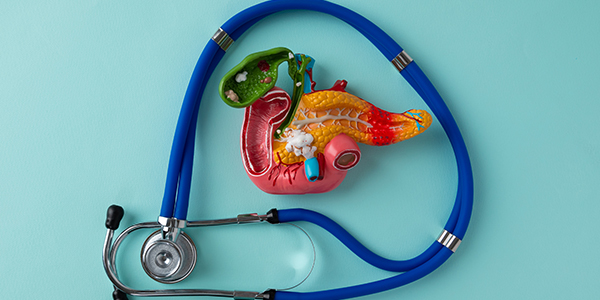
Diarrhea Treatment Specialist
June 19, 2023
Gastroenteritis Specialist in Midtown NYC
June 19, 2023Nurturing Your Gut: Foods for Inflammatory Bowel Disease (IBD) Management
Inflammatory Bowel Disease (IBD) is a group of chronic disorders that cause inflammation in the digestive tract, leading to symptoms like abdominal pain, diarrhea, and fatigue. While there is no one-size-fits-all diet for IBD, making thoughtful dietary choices can help manage symptoms and support overall well-being. This article explores foods that can be beneficial for individuals with IBD, along with answers to common questions about dietary strategies.

The Role of Diet in IBD Management:
While diet alone cannot cure IBD, it plays a crucial role in managing symptoms and promoting gut health. Dietary choices can influence inflammation, gastrointestinal function, and nutrient absorption, impacting the overall quality of life for individuals with IBD.
Foods to Include in an IBD-Friendly Diet:
Low-Fiber Foods: For those experiencing flare-ups, low-fiber foods like white rice, white bread, and peeled fruits can help reduce irritation and ease digestion.
Lean Proteins: Skinless poultry, fish, eggs, and tofu provide essential proteins without adding stress to the digestive tract.
Cooked Vegetables: Well-cooked, peeled, and deseeded vegetables such as carrots, zucchini, and spinach can be easier to digest.
Fruits: Opt for ripe, peeled, and cooked fruits like bananas, applesauce, and melons.
Probiotic-Rich Foods: Yogurt, kefir, and sauerkraut help promote a healthy gut microbiome. For a comprehensive digestive evaluation, including EUS, we offer specialized assessments.
Healthy Fats: Omega-3 fatty acids found in salmon, flaxseeds, and walnuts can have anti-inflammatory effects.
Fluids: Staying hydrated is essential. Clear liquids, herbal teas, and diluted fruit juices can help maintain hydration.
Foods to Approach with Caution:
High-Fiber Foods: Raw fruits, vegetables, whole grains, and seeds can exacerbate symptoms during flare-ups.
Spicy and Acidic Foods: Spicy and acidic foods, like hot sauces and citrus fruits, may trigger irritation. If you also suffer from hemorrhoids, you might want to consider our hemorrhoid treatment options for relief.
Dairy: Some individuals with IBD may be lactose intolerant. Choose lactose-free options or small amounts of dairy.
Carbonated Drinks: Carbonation can lead to gas and discomfort in some individuals.
Personalization and Professional Guidance:
It's important to remember that dietary needs vary based on the type and severity of IBD, as well as individual tolerances. Consulting a registered dietitian who specializes in gastrointestinal health can provide personalized guidance tailored to your unique needs.
Frequently Asked Questions (FAQs)
Should I avoid all high-fiber foods with IBD?
During flare-ups, it's advisable to limit high-fiber foods as they can worsen symptoms. However, consult your healthcare provider or dietitian for individual recommendations.
Can dairy worsen IBD symptoms?
Some individuals with IBD may experience lactose intolerance, leading to worsened symptoms. Opt for lactose-free dairy or alternatives.
Are there specific spices I should avoid with IBD?
Spices, hot sauces, and very spicy foods might trigger irritation in some individuals with IBD. Moderation is key.
Can dietary changes alone treat IBD?
Dietary changes can complement medical treatments, manage symptoms, and improve overall well-being, but they are not a standalone treatment for IBD.
Nourishing Your Gut for Better Living:
Managing IBD through diet involves finding the right balance between nutrient intake, symptom management, and overall well-being. While dietary choices can impact IBD symptoms, it's important to work closely with healthcare professionals to create a tailored dietary plan that aligns with your individual needs. By making informed food choices, individuals with IBD can empower themselves to support their gut health and improve their quality of life.



